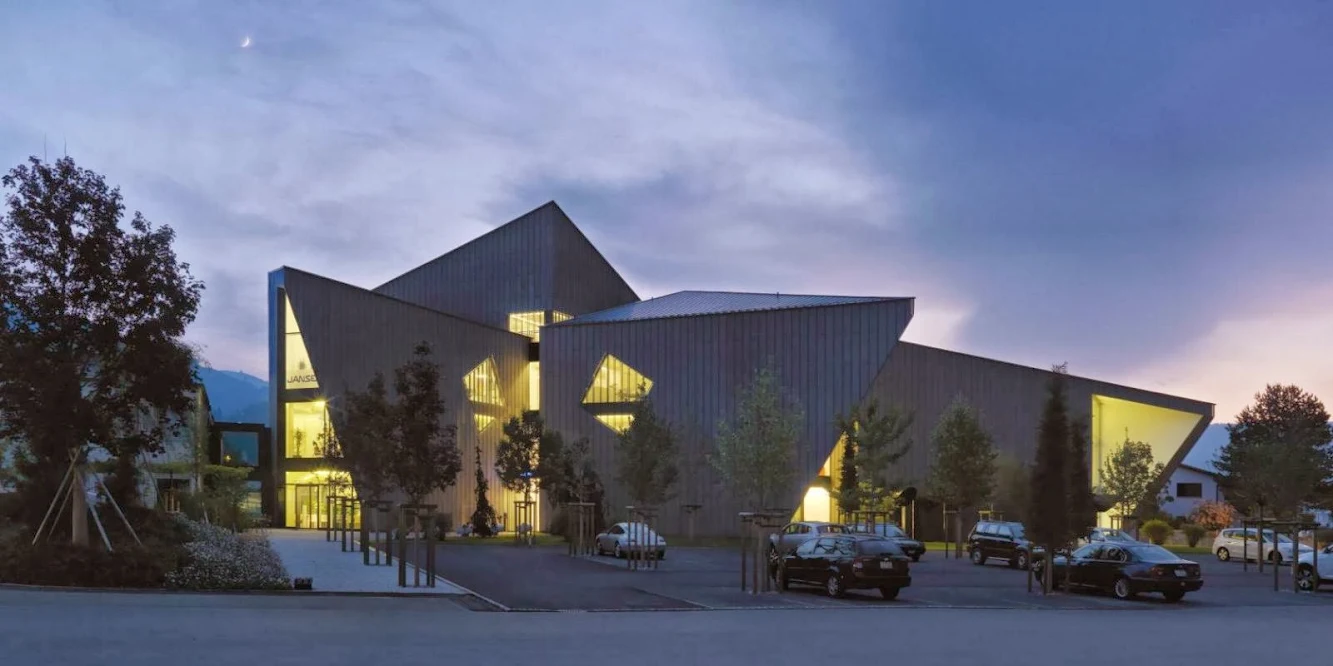
The building, a striking new addition to the skyline, is the link between the industrial area and the old town and takes its triangular forms from the traditional pitched roofs of Oberriet.
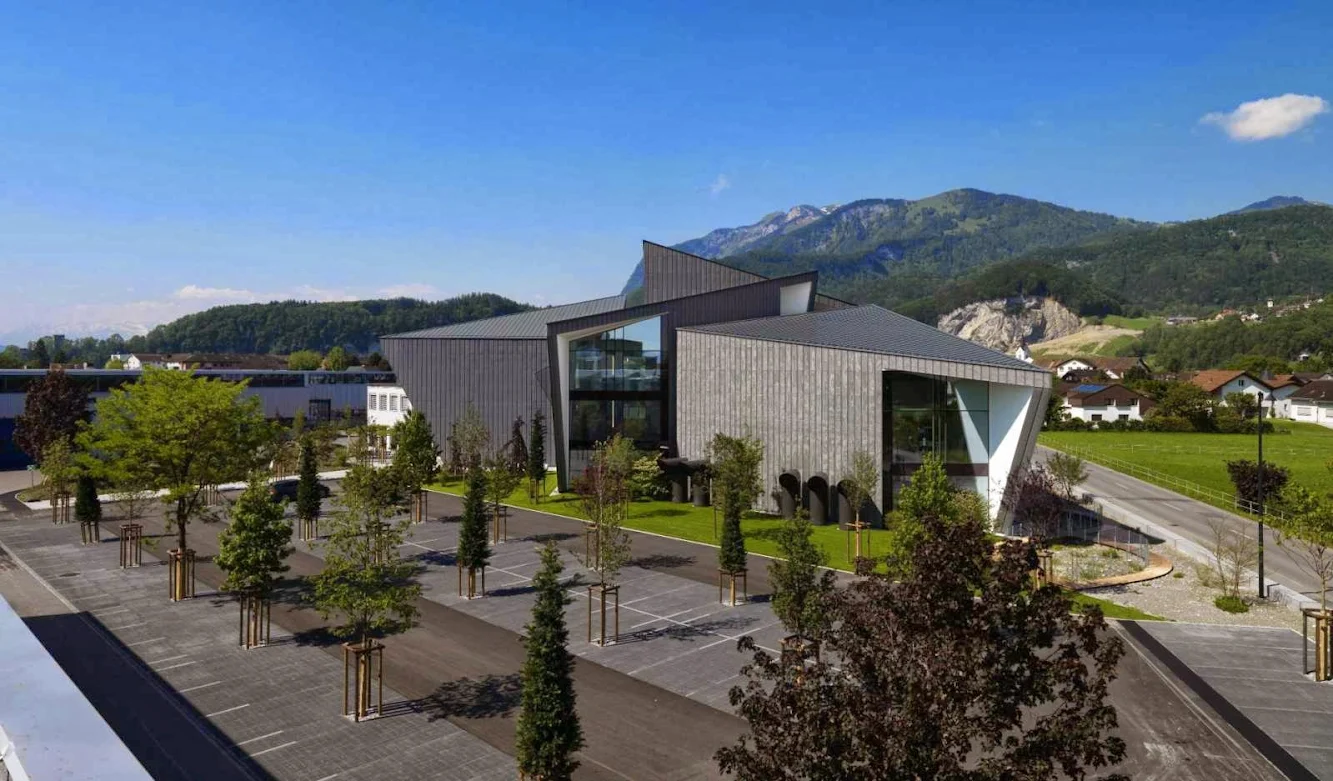
The project integrates innovative technologies and includes new details and materials not yet used in architecture- the façade system for example, structural glazing details (by Jansen Ag) and internal glazed fireproof doors.

The building’s heating, ventilation, lighting and energy consumption meets strict Swiss ‘Minergie’ standards, meaning that it has excellent sustainable credentials- the Hv system, for example, is ‘TAPS’, activated by the structural shell of the building.

One of Jansen’s main objectives for the project is to make the Campus a creative and engaging place for all their employees. the building’s work spaces are open plan, with each employee have their own custom designed workstation.
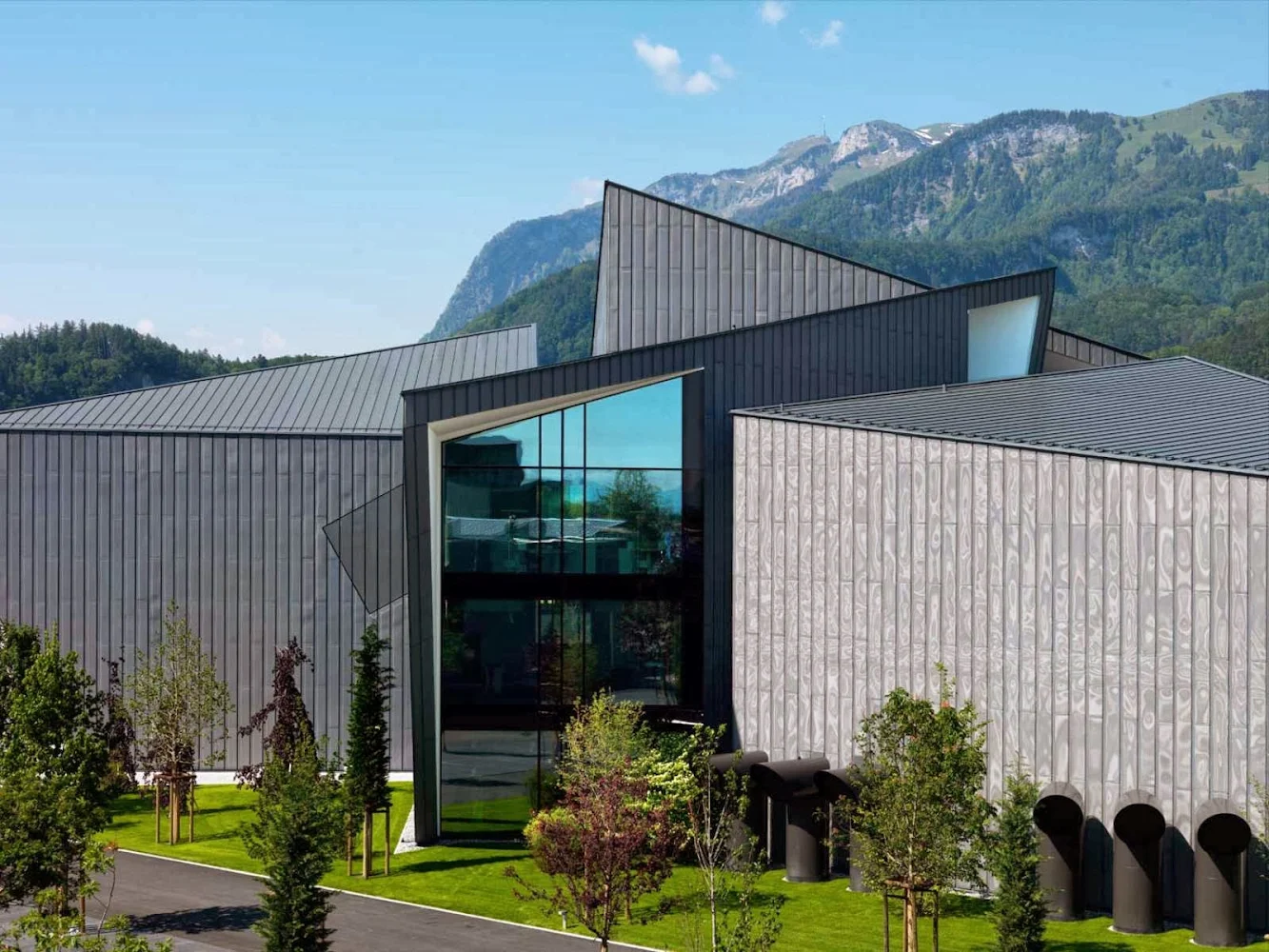
The internal landscape is articulated as a fluid space, almost as if it were formed by an extension of the urban streets of the village, a system of solids and voids expanding in all directions.

The apparent mass of the new building is dematerialised internally, flooded with natural light teeming through the generous openings and the grand slicing overhangs that project the users out to the landscape.
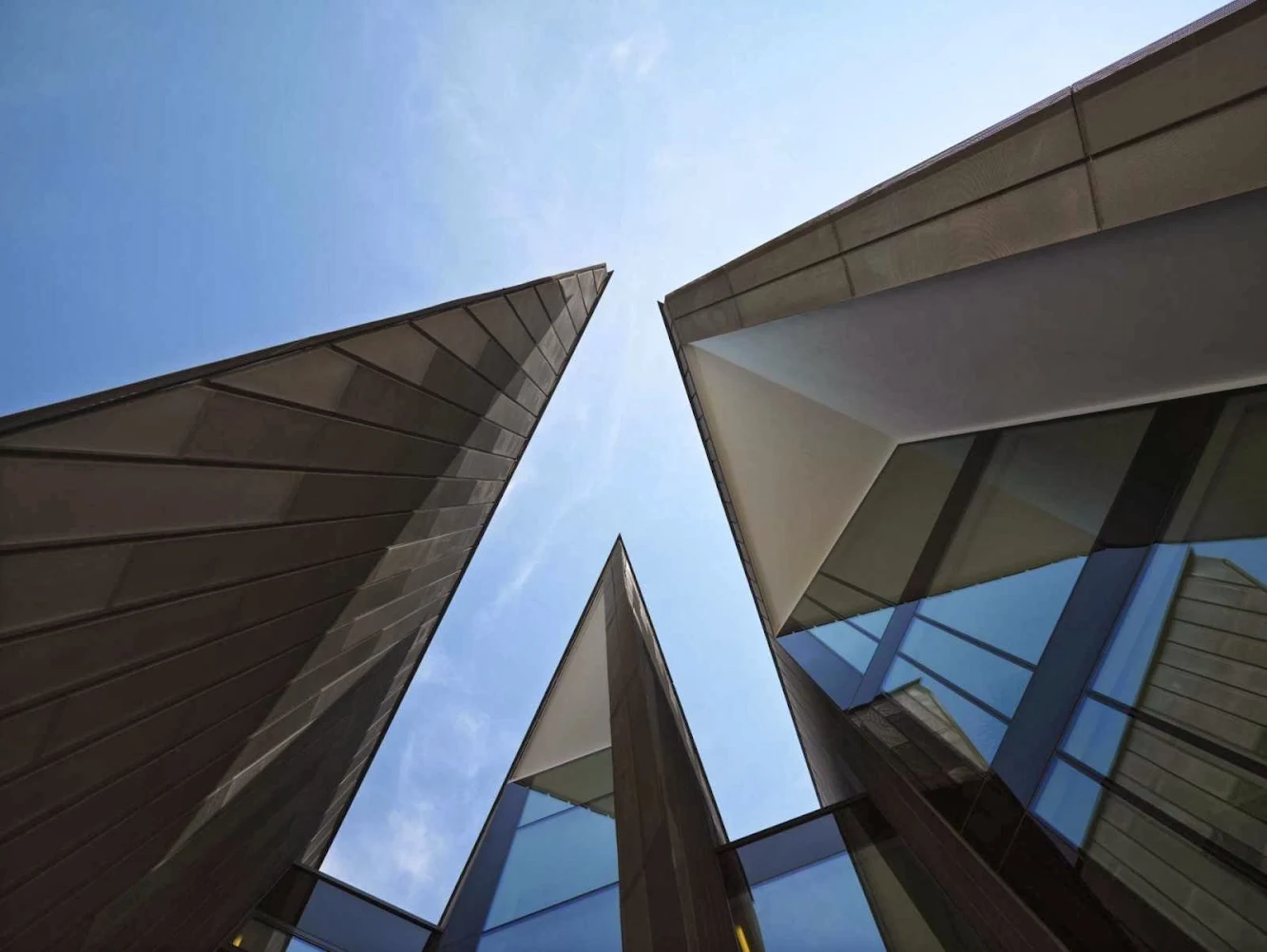
All spaces look out across the Rheintal and the geometry of the building means that visitors and employees alike are offered unexpected glimpses sliced out of the landscape.

The landscaped park surrounding the building includes 80 trees, 35 different species representative of those of the region. the project also sees the beginning of the Jansen Art collection, containing works by international contemporary artists.

Despite its apparent sophistication, the atmosphere of the internal landscape reflects the principle of reducing details to a minimum. the constructive elements are therefore always explicit and follow the rationale and economy of the site and the project, giving the space a technical, industrial atmosphere.

Just as in the attention given to every detail in construction, the same precision and care went into the choice of furniture and the lighting and technical elements in the building. It was decided that the furniture pieces would be products of the recent generation of designers, the result of a particular technological research, be of resistant and durable materials and reflect the philosophy of Jansen.










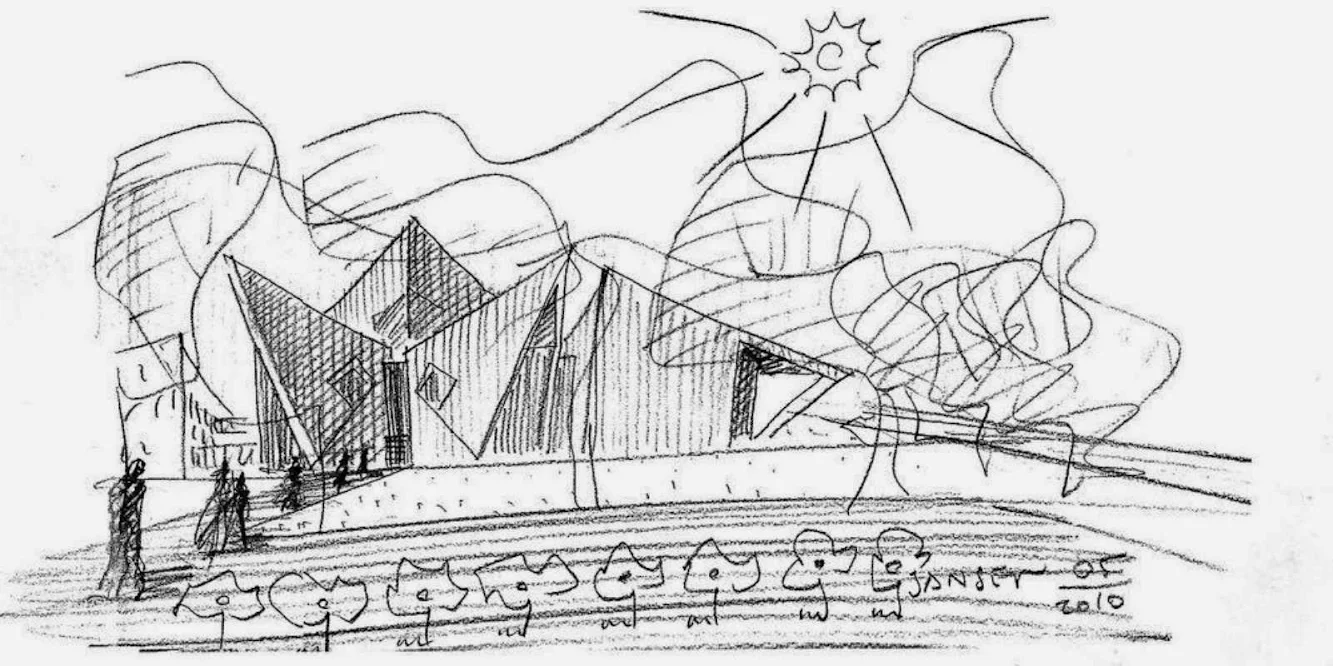
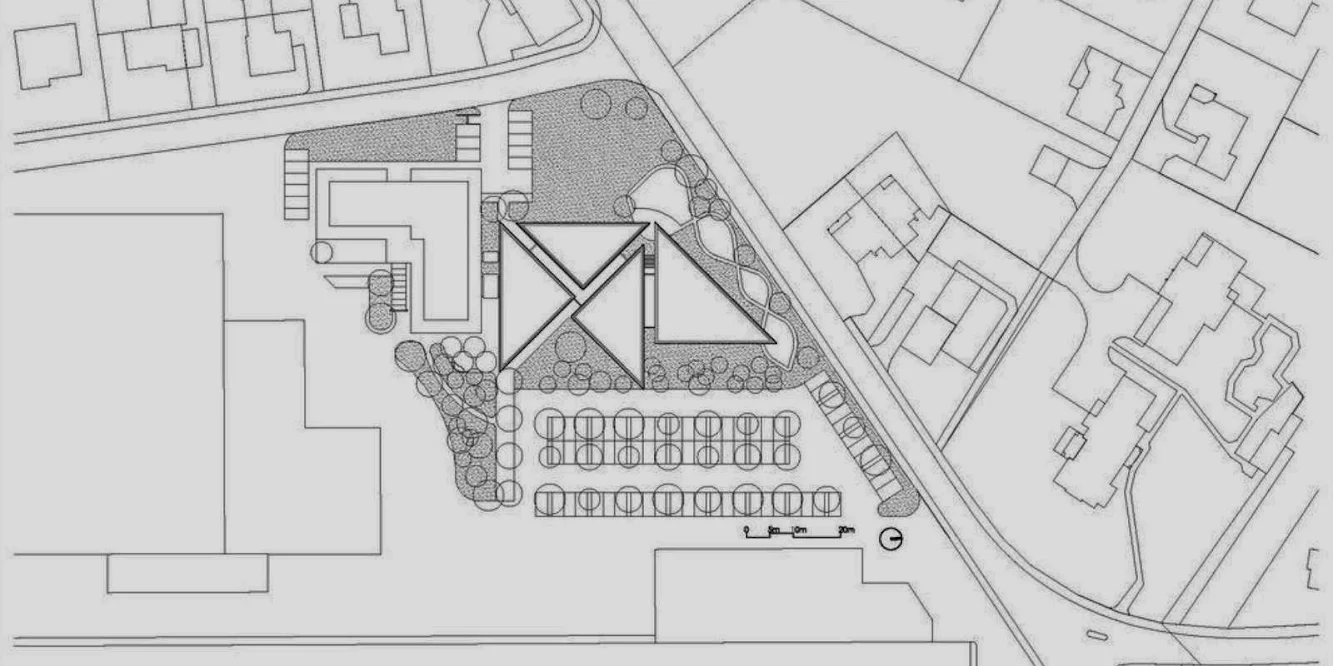
Location: Oberriet, Sg, Switzerland Architects: Davide Macullo Architects Project architect: Lorenza Tallarini Project Team: Ah Lom Kim, Aileen Forbes-Munnelly, Karen Abernethy, Michele Alberio, Samuela Pfund Landscape architect: Davide Macullo Architects – Lugano Ti Interior design: Davide Macullo Architects – Lugano Ti Structural engineer: Wälli Ag Ingegnieure – St Gallen Sg Building engineer, acoustics: Baumann Akustik und Bauphysik Ag – Dietfurt Sg System engineer and coordination: Amstein und Walthert Ag – St GallenSg Lighting engineer: Caduff Lichtplanung – Dietikon Zh Facades consultant: Fiorio Fassadentechnik GmbH – Zuzwil Sg Facade construction: K + K Fassaden Ag – St Gallen Roof construction: Loher Spenglertechnik Ag – Oberriet Sg, Rossi Ag – Oberbüren Sg Lighting: Regent Beleuchtungskörper Ag – Zürich Zh Contractor: Architekten: rlc Ag – Rheineck Sg Site area: 3,705 m2 Building area: 1,100 m2 Year: 2012 Client: Jansen Ag